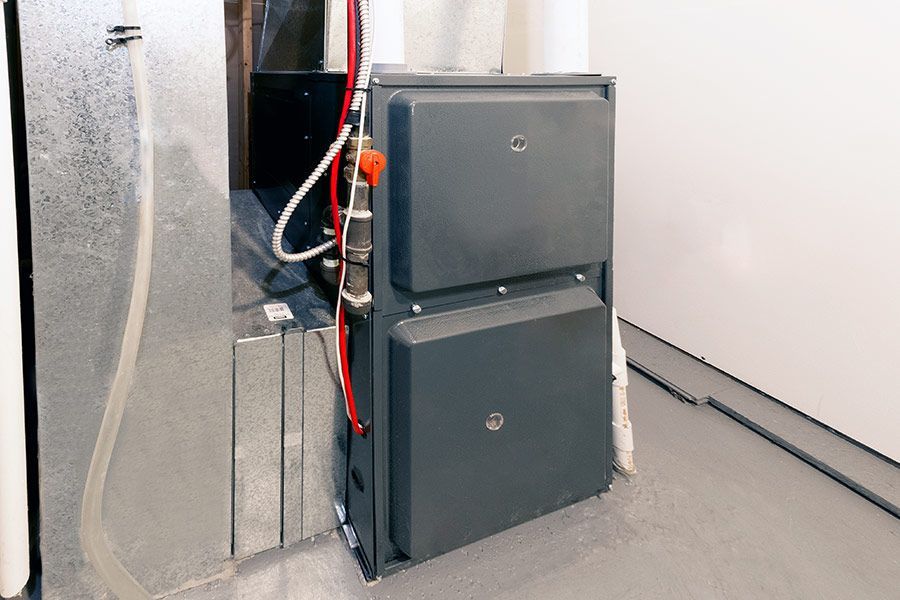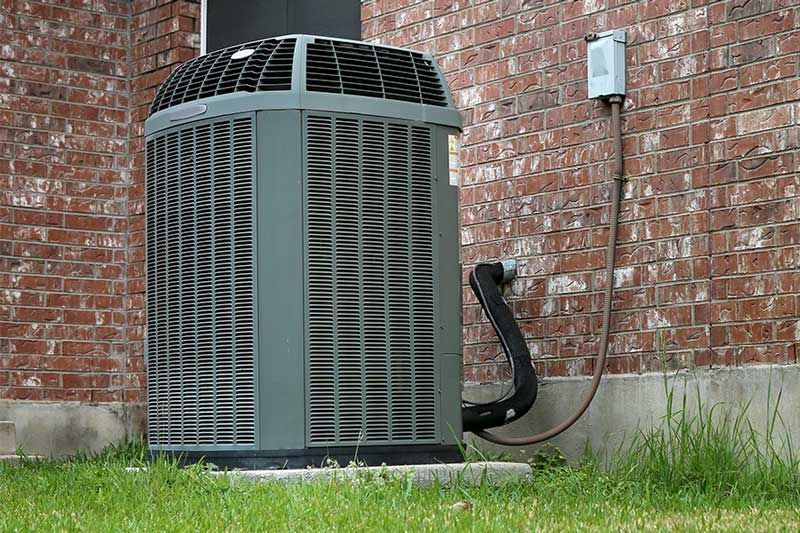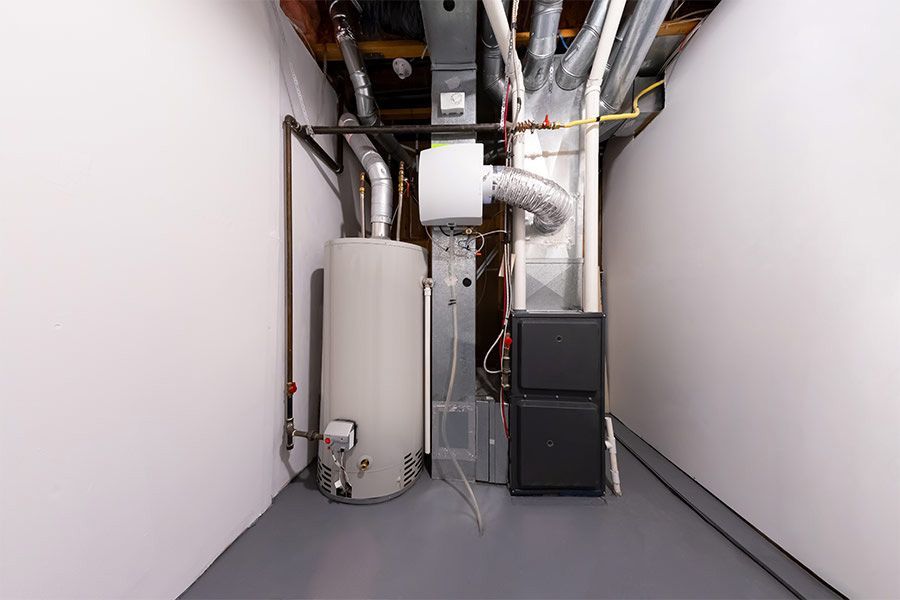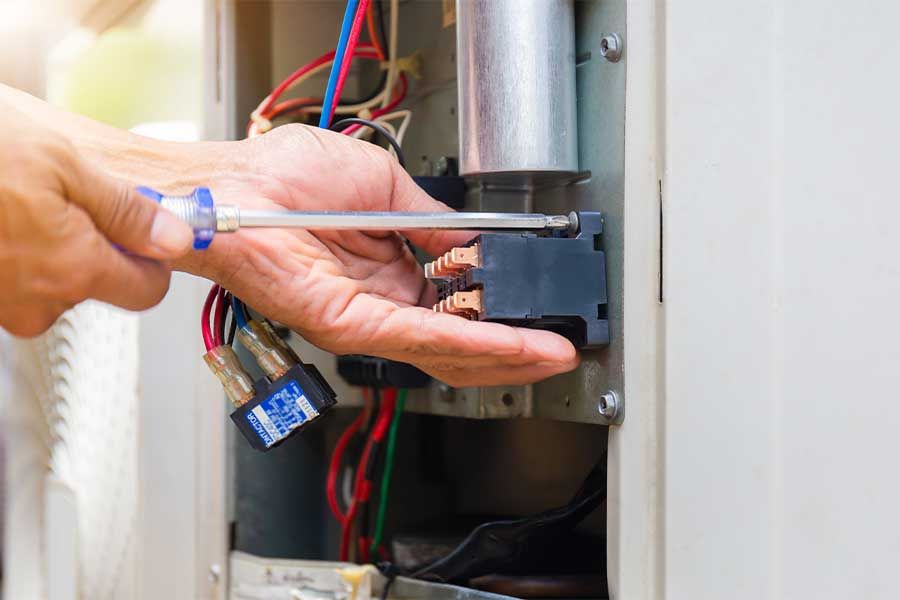Boiler Vs. Furnace: Understanding the Key Differences
Choosing between a boiler and a furnace can feel like deciding between night and day, yet understanding the key differences is simpler than you might think. Boilers provide consistent warmth through water or steam, while furnaces quickly heat spaces using forced air. Each has distinct installation, cost, and efficiency factors that could impact your home’s comfort and wallet. So, how do these systems stack up regarding maintenance needs, environmental impact, and ideal climate conditions? Exploring these aspects will help you make the right choice for your home’s heating needs.
Heating Method Comparison
When comparing heating methods, boilers utilize water or steam to distribute heat through radiators or underfloor systems, while furnaces rely on forced air to circulate warmth via ducts. Understanding these differences is essential to making informed decisions as someone keen on serving others. Boilers, known for hydronic heating, offer even, gentle warmth and can double as water heaters. They’re ideal if you want to maintain consistent temperatures and reduce airborne allergens, making them a solid choice for environments requiring clean air quality.
On the other hand, furnaces heat air directly and use a blower motor to distribute it throughout your space. With quicker heat delivery, they’re beneficial in situations demanding rapid temperature adjustments. However, because they circulate air, you might need to consider additional filtration solutions to keep airborne particles at bay.
When selecting between boilers and furnaces, evaluate the specific needs of those you wish to serve. Boilers might be more advantageous for those with respiratory sensitivities, while furnaces could be better for fast-paced environments. Your choice impacts comfort, air quality, and overall satisfaction, so weigh these factors carefully to guarantee the best solution.
Energy Efficiency Analysis
Evaluating energy efficiency, boilers often boast higher seasonal energy efficiency ratios (SEER) than furnaces, largely due to their hydronic heating process that minimizes heat loss. Boilers circulate hot water, which retains heat better than air, through radiant floor systems or radiators. This method reduces thermal stratification, ensuring even heat distribution and conserving energy. In contrast, furnaces rely on forced-air systems, which can suffer from duct losses and air leaks, resulting in decreased efficiency.
When choosing between these systems, consider the Annual Fuel Utilization Efficiency (AFUE) ratings. Boilers typically achieve 85% to 95% AFUE ratings, indicating they convert most of their fuel into heat. Condensing boilers push efficiency even further by utilizing latent heat from exhaust gases. On the other hand, high-efficiency furnaces can reach AFUE ratings up to 98%, but standard models usually fall between 78% and 84%.
Focus on maintenance and system design to serve others more effectively. Regular tune-ups, sealing ducts, and optimizing thermostat settings can enhance both systems’ performance. By understanding these energy efficiency nuances, you can make informed decisions that maximize comfort and sustainability in your heating solutions.
Cost Considerations
Considering initial investment and long-term operation, boilers typically have higher upfront costs but offer potential savings through efficiency and longevity. At the same time, furnaces generally come with lower installation expenses but might require more frequent maintenance. When deciding between the two, you must evaluate the capital expenditure (CAPEX) and operating expenditure (OPEX). With their hydronic heating systems, boilers often demonstrate superior thermal efficiency, resulting in reduced energy consumption over time. This can translate into lower utility bills and an impressive return on investment (ROI) for those prioritizing sustainable energy solutions.
In contrast, furnaces utilizing forced-air systems usually present a more economical option at the time of purchase. However, their operational costs can escalate due to their reliance on ductwork, which can suffer from heat loss and necessitate regular servicing. You should also weigh the potential impacts of maintenance frequency and parts replacement on your budget.
Consider your heating needs, geographic location, and energy prices. If you’re serving a community or organization, the long-term cost savings of a boiler might align better with your mission to provide efficient and reliable service. Balancing these factors will guide you in making a sound financial decision.
Installation Requirements
Installing a boiler requires precise planning and expertise due to its complex piping and venting systems, whereas a furnace installation often involves simpler ductwork and electrical connections. Understanding these differences helps you provide the most efficient heating solution when serving others. You’ll need to guarantee proper alignment and connection of water pipes for boilers, which often require specialized tools and skills. Here’s what you should consider:
- Piping Complexity: Boilers demand intricate piping networks, including supply and return lines, which necessitate careful planning to guarantee efficient heat distribution.
- Venting Systems: Unlike furnaces, boilers may require additional venting solutions to expel combustion gases, which can complicate installation logistics safely.
- Space Requirements: Boilers often take up more space due to the need for additional components like expansion tanks and circulators, which impacts where they can be installed.
Furnaces, on the other hand, rely on ductwork for air distribution. Their installation focuses on guaranteeing the duct system is properly sealed to prevent energy loss and maintain air quality. You’ll find that the electrical connections for furnaces are generally straightforward, requiring standard wiring practices. Both systems require adherence to local codes and regulations, underscoring the importance of professional installation.
Maintenance Needs
After installation, understanding the distinct maintenance needs of boilers and furnaces is key to guaranteeing longevity and efficiency. With their water-based systems, boilers require regular inspection of water levels, pressure, and temperature settings to avoid potential malfunctions. You should bleed radiators and check for leaks in the piping system to maintain peak performance. Annually, it is crucial to flush the boiler system to remove sediment build-up, which can hinder heat exchange efficiency.
For furnaces, focus on airflow and combustion efficiency. Replace or clean the air filters monthly during peak usage periods to prevent airflow obstructions. Inspect the blower motor and belts for wear and tear, confirming they’re properly lubricated. The combustion chamber should be checked for soot accumulation, as it can affect efficiency and safety. Regularly inspect the flue and vents for any blockages that could lead to dangerous carbon monoxide buildup.
Both systems benefit from professional servicing at least once a year. This guarantees all components are functioning effectively and identifies potential issues before they escalate. Adhering to these maintenance practices will enhance your heating system’s performance, ensuring it serves effectively and safely.
Lifespan and Durability
Boilers generally offer a longer lifespan than furnaces, often exceeding 15 years with proper maintenance, due to their fewer moving parts and robust construction. This longevity is key if you’re focused on providing reliable service and minimizing disruptions. Boilers rely on water or steam to transfer heat, which reduces wear and tear compared to the forced air systems in furnaces. Let’s break down some critical aspects of lifespan and durability:
- Component Quality: Boilers often use high-grade materials like cast iron or stainless steel, enhancing durability. In contrast, furnaces incorporate more mechanical elements, increasing the risk of component failure over time.
- System Complexity: A boiler’s simple design means fewer breakdowns. Furniture, with its intricate ductwork and blower systems, requires more frequent repairs.
- Thermal Efficiency: Boilers maintain consistent temperature control, thereby minimizing stress on the system. Furnaces can experience more temperature fluctuations, leading to potential stress fractures.
Environmental Impact
When evaluating the environmental impact, boilers often outperform furnaces due to their higher efficiency rates and lower carbon emissions. Boilers, particularly condensing models, achieve efficiency ratings above 90%, converting more fuel into usable heat. This efficiency reduces fuel consumption and minimizes greenhouse gas emissions, aligning with eco-friendly objectives. In comparison, traditional furnaces display lower efficiency, typically around 80-85%, resulting in higher carbon footprints.
Additionally, boilers use water or steam to transfer heat, which can retain thermal energy longer than air. This reduces the cycling frequency and energy expenditure, contributing to environmental benefits. Boilers also allow for integration with renewable energy systems, such as solar thermal panels, enhancing sustainability and reducing dependency on fossil fuels.
On the other hand, furnaces, especially older models, often rely on natural gas or oil, producing significant emissions. While modern furnaces have improved, they still lag behind boilers in environmentally conscious operations. As someone invested in serving others and the planet, choosing a boiler could better align with your commitment to reducing environmental impact. Prioritize models with ENERGY STAR certifications to guarantee maximum efficiency and sustainability.
Noise Levels
You’ll notice that boilers typically operate more quietly than furnaces, thanks to their hydronic heating systems, which minimize the mechanical noise associated with air circulation. In a boiler, water serves as the heat transfer medium, eliminating the loud blower fans and ductwork noise commonly found in furnaces. This makes boilers particularly beneficial in environments where maintaining a peaceful atmosphere is essential, such as hospitals or care homes.
To better understand the noise differences, consider these three factors:
- Mechanical Components: Boilers have fewer moving parts than furnaces, reducing the potential for noise. Furnaces rely on fans and blowers, which can generate significant sound vibrations.
- Heat Distribution: Boiler systems distribute heat through radiators or underfloor piping. They are inherently quieter than forced-air systems, which circulate air through vents and ducts.
- Combustion Process: Boilers' combustion occurs in a sealed environment, reducing the noise from burner operation, whereas furnaces may have open combustion, increasing sound levels.
Space and Size
Furnaces generally require more space for installation due to their need for extensive ductwork and air-handling units. In contrast, boilers can be more compact, fitting efficiently into smaller areas with minimal spatial requirements. When considering installation, consider the furnace’s demand for a dedicated mechanical room, accommodating both the unit and its ducting network. You’ll need to guarantee ample clearance around the system for maintenance and airflow efficiency, particularly if serving a larger building or complex. This spatial footprint can impact floor plan design and utility access.
In contrast, boilers offer a more adaptable setup. They can be wall-mounted or nestled into tight basement corners, maximizing available real estate. Their piping rather than ductwork allows for a streamlined installation process, which is especially beneficial in retrofitting older structures without existing duct systems. This space-saving feature can be essential in environments with premium square footage, and every inch counts.
Ideal Climate Conditions
Boilers typically outperform furnaces in colder climates by providing more consistent and efficient heating through radiant heat distribution. When you’re dedicated to serving others by ensuring their comfort, understanding the ideal climate for each system is essential. Boilers shine in areas with prolonged, harsh winters due to their ability to deliver even heat without creating drafts. Radiant heat warms objects and people directly, leading to a cozy environment.
Consider these three key aspects when evaluating climate suitability:
- Temperature Fluctuations: Boilers maintain a stable indoor temperature in regions with extreme cold, reducing the need for constant adjustments.
- Humidity Levels: Furnaces can dry out indoor air, but boilers help maintain natural humidity, beneficial in arid, cold climates.
- Energy Efficiency: Boilers often boast higher energy efficiency ratings, especially in consistently cold environments, translating to lower operating costs.
Furnaces might be more appropriate in moderate climates due to their rapid heat delivery and lower upfront costs. However, boilers offer a superior solution if you’re in a severely cold region and aim to provide a warm, welcoming atmosphere. By understanding these nuances, you’re better equipped to make decisions that prioritize comfort and energy efficiency for those you serve.

Conclusion
So, you’ve navigated the labyrinth of boilers and furnaces; ironically, the choice remains as clear as mud. While boilers promise efficiency and long-term savings, their upfront cost might just boil your budget. On the other hand, furniture is a breeze to install but could blow your maintenance costs sky-high. Ultimately, your ideal heating solution hinges on climate quirks and spatial specifics. So, embrace the irony—your perfect system may depend on your willingness to compromise.
Frequently Asked Questions
How Do Boilers and Furnaces Affect Indoor Air Quality?
You’re improving indoor air quality with boilers since they use water, reducing dust and allergens. Furnaces can circulate dust and dry air, affecting comfort. Prioritize regular maintenance and filtration to serve your household’s health needs.
What Are the Safety Features of Boilers Versus Furnaces?
You need to prioritize safety features. Boilers often include pressure relief valves and low-water cutoffs, while furnaces have flame sensors and high-temperature limit switches. Understanding these components helps guarantee efficient and safe heating for those you serve.
Can Boilers and Furnaces Be Controlled via Smart Home Systems?
Yes, you can integrate boilers and furnaces with smart home systems. Utilize IoT-enabled thermostats and controls to optimize performance, enhance energy efficiency, and provide remote monitoring, ensuring comfort and safety for those you serve.
How Do Boilers and Furnaces Handle Extreme Cold Temperatures?
You’re diving into Arctic resilience here! Boilers excel, circulating hot water like a pro, ensuring consistent warmth. Furnaces crank up the heat, blasting air forcefully. Both combat extreme cold, ensuring your home remains cozy and welcoming.
Are There Aesthetic Differences Between Boilers and Furnaces?
You notice boilers generally have a more compact, discreet design, often blending into utility areas. Furnaces with larger ductwork require more space, potentially impacting room aesthetics. Consider these differences when planning spaces that serve efficiently.
You might also like







